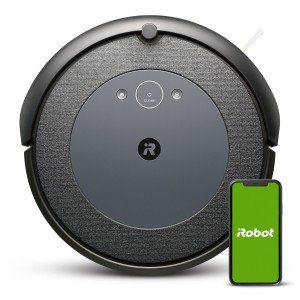Robotic Vacuum Cleaner Comparison: The Future of Home Cleaning
Over the last few years, robotic vacuum have actually transformed the method we keep cleanliness in our homes. With improvements in technology and the incorporation of synthetic intelligence, these devices have actually evolved from mere novelty products to important household home appliances. This post provides a comprehensive comparison of some of the leading robotic vacuum bot on the marketplace, helping customers make notified choices when selecting a model that suits their requirements.
Comprehending Robotic Vacuum Cleaners
Robotic vacuum are self-governing devices developed to clean floors immediately. Equipped with sensors, they navigate around obstacles and change their cleaning routes for maximum efficiency. The essential features that separate numerous models include suction power, battery life, app connection, navigation technology, and price.
Key Features to Consider
When comparing robotic vacuum, prospective buyers ought to consider the following aspects:
- Suction Power: Measured in Pascals (Pa), suction power figures out the efficiency of choosing up dirt and particles.
- Battery Life: The length of time a vacuum can operate before requiring a recharge substantially affects its cleaning efficiency.
- Navigation Technology: Models might utilize easy random navigation or sophisticated mapping technologies (like LIDAR) that allow them to develop a map of the home.
- Smart Features: Connectivity to smart device apps or smart home systems can improve usability and control.
- Filter Type: HEPA filters are advised for allergic reaction sufferers, as they trap irritants and improve air quality.
Comparison of Top Robotic Vacuum Cleaners
Below is a comparison table of a few of the best robotic vacuum readily available in 2023:
| Model | Suction Power (Pa) | Battery Life (minutes) | Navigation Technology | Smart Features | Price (GBP) |
|---|---|---|---|---|---|
| iRobot Roomba i7+ | 1700 | 75 | Smart mapping | App control, voice command | ₤ 949 |
| Roborock S7 | 2500 | 180 | LIDAR | App control, multi-floor | ₤ 649 |
| Neato D7 | 2000 | 120 | LIDAR | App control, zone cleaning | ₤ 599 |
| Ecovacs Deebot T10 | 3000 | 150 | Smart mapping | App control, room detection | ₤ 799 |
| Shark IQ robot vacuum cleaner comparison | 1200 | 90 | Random | App control, self-emptying | ₤ 399 |
Explanation of the Table
iRobot Roomba i7+: Known for its robust cleaning ability, it includes smart mapping innovation that allows it to designate particular areas for cleaning. Its self-emptying feature is a plus for convenience.
Roborock S7: This model masters suction power and battery life, making it ideal for bigger homes. Its LIDAR technology helps produce an effective cleaning path, and it can robot vacuum cleaner price and mop concurrently.
Neato D7: The D-shape design enables much better corner cleaning, and it features strong suction power. Its LIDAR navigation enables it to draw up cleaning locations precisely.
Ecovacs Deebot T10: Boasting the highest suction power and advanced navigation, this design can manage multiple floorings successfully. It's a versatile option for households with varying floor types.
Shark IQ robot vacuum deals: An economical choice that still provides smart functions. Its self-emptying capability and app integration make it a useful option for those searching for a strong cleaning buddy without breaking the bank.
Advantages of Robotic Vacuum Cleaners
Robotic vacuum cleaners provide various benefits that contribute to their rising popularity among consumers:
- Time-Saving: Automated cleaning allows users to free up important time that can be invested in other activities.
- Convenience: Many designs can be set up via apps to clean up at specific times, decreasing manual effort.
- Accessibility: They can reach under furnishings and in tight areas where conventional vacuums may have a hard time.
- Daily Maintenance: Regular usage of robotic vacuums can help maintain a regularly clean environment, promoting much better general home health.
Frequently Asked Questions About Robotic Vacuum Cleaners
1. How frequently should I run my robotic vacuum?
It is advised to run the robotic vacuum at least 2-3 times a week to keep cleanliness, though daily usage can be useful, specifically in homes with pets or high foot traffic.
2. Do robotic vacuums work on carpets?
Yes, lots of robotic vacuums are designed to deal with carpets, however effectiveness might vary based on the model's suction power and brush type. Search for designs particularly discussed as reliable for carpets.
3. Can robotic vacuums clean pet hair?
A lot of robotic vacuums can effectively get pet hair, however those with strong suction and tangle-free brush designs are particularly well-suited for this task.
4. How do I preserve my robotic vacuum?
Routine maintenance consists of cleaning the brushes and sensing units, emptying the dustbin, and sometimes replacing filters to guarantee optimum efficiency.

5. Are robotic vacuums worth the investment?
While they tend to be more expensive than conventional vacuums, the convenience, efficiency, and time-saving aspects make them a worthy financial investment for numerous homes.
The market for robotic robot vacuum sale continues to broaden as innovation develops, using consumers a range of choices to fit various cleaning needs and spending plans. By carefully thinking about features such as suction power, battery life, and smart capabilities, users can select a design that lines up with their way of life. Whether for convenience, ease of use, or superior cleaning efficiency, robotic vacuums are certainly improving the future of home cleaning.








